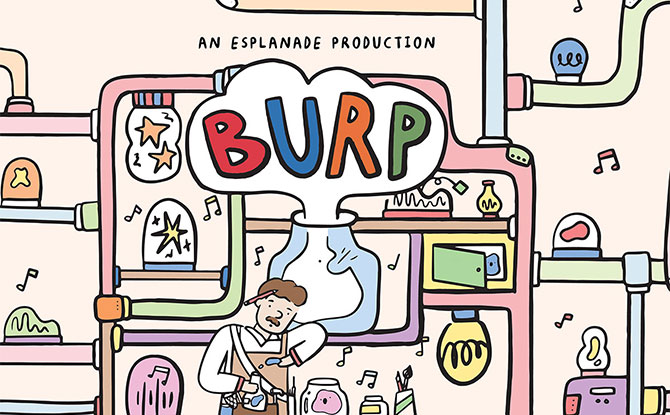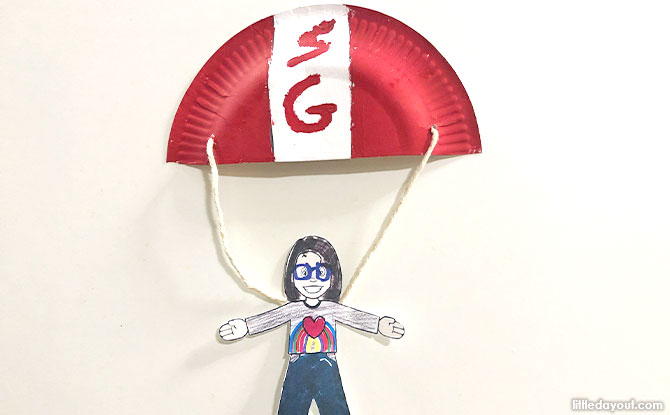Mental health problems can often be hard to diagnose, especially for parents with adolescents. Many may face mood changes or a season of “locked room doors” and a general unwillingness to communicate. How do we be vigilant in identifying mental health problems in our child? In addition to Dr Daniel Fung’s exposition on parenting misconceptions, he also talked about mental health issues in our children.
Here are some tips he shared in identifying mental illnesses in children.
Mental Illness in Adolescents in Singapore
The statistic as shown in research by IMH done in 2016 revealed that about one in seven in Singapore face mental illness. There are typically nine symptoms to look out for in diagnosing mental illness: depressed mood, diminished interest, weight change, sleep disturbance, psychomotor agitation, fatigue, feelings of worthlessness, lack of focus, suicidality.
The most common mental illness is depression in the local context. The difference between mental illness and mental health distress is the former has to be diagnosed, requires treatment while the latter may require counselling or therapy. Dr Fung also shared that many children in Singapore experience burnout and exhaustion. Time and emotional care are needed for many children in Singapore.
BE PSLE-READY: Join Expert Educators for Revision Boosters to Empower P6 Students
BURP: Join the Sound Collector on a Whimsical Chase at Esplanade – Theatres on the Bay
WEEKEND IDEAS: Get Inspirational Ideas of Things to Do
Identifying Mental Health Problems in Our Child – Identify if Behaviour is Abnormal

Understand the child’s developmental phase
Perhaps the child is going through natural phases of development. This includes the awkward feelings of puberty, or an angsty phase or even a particularly stressful time in school because of exams and commitments.
As the children grow, they may prefer to be rid of different habits they had as a younger child. This can be due to social or cultural norms we may not be familiar with. Hence, these changes do not have to be alarming nor should we overreact. Don’t make the child do the same things they were accustomed to when they were little.
Be in touch with teachers and peers
Sometimes the children behave differently in a different setting. For instance, if the child seems moody at home, you might want to sound his peers and teachers out. If healthy socialisation is occurring in school and amongst friends, it could be a preference of their own space at home. Do have multiple sources of information before arriving at your conclusion – if anything is wrong.
Understand YOUR child

Each child is unique, be sure to understand your child well so you would be in tune with his or her emotional and mental health needs.
Five Kinds of Youth – Which is Yours?
Dr Fung also shared the five kinds of youth: Developmentally problematic, emotional, inattentive, addicted and “normal”. Understand the kind of child by first knowing what the problem is, how the problem arose, other problems in consideration and the expectations of the child and the family.
Most youths do not fall into the developmentally problematic category. This includes impairment, disability, social handicap and more commonly autism.
The Emotional youth tends to worry excessively and has difficulty controlling anxiety. Symptoms include restlessness, tiredness, irritability, sleep disturbance, repetitive thoughts and behaviour. 2 to 3% develop an anxiety disorder.
A more common illness is depression, this happens to 10 to 15% of the population. Symptoms to look out for include loss of interest, poor concentration, negative thoughts, suicidality. Asian youths also tend to be dependent on the hierarchy of their relationships with family, teachers, school counsellors. Any disruption can cause great distress. If you see symptoms persisting for at least two weeks, do seek medical attention for your child.
Inattentive youths or youths with ADHD are usually impulsive, hyperactive, inattentive and unable to regulate their emotions. The result from their behaviours could be bullying, abuse or isolation thus causing mental illnesses such as depression, anxiety disorders, anger management, OCD or bipolar. Sometimes apart from behavioural treatment, medications are necessary.
Addicted youth could be heavily dependent on vaping, smoking, online gaming or social networking. Mental illnesses can result from addiction. Thus, screentime monitoring is essential in this day and age.
Last but not least, the “normal” child could be any of our child who faces the daily stresses of life like sibling rivalry, social issues like divorce, or trauma from abuse and bullying.
Role of Parents in Ensuring Mental Health Wellness in Children

As parents, we can ensure our children are mentally well by having a positive relationship with them, establishing rules, and being role models to them. Spend time with each child to develop trust and understanding of one another. Set frameworks for discipline, not punishment with the goal of rules as to teach self-discipline. Role model through stories, interaction amongst other adults, siblings to improve self-awareness
Volunteer work can also help the children understand themselves better through helping others in need.
More importantly, parents can help to nurture resilience in children with an appropriate amount of stress as well as by learning new skills. Parents can certainly help to support the child emotionally through challenging experiences and encourage them even through difficult times. Providing a safe and supportive environment for the adolescent can mean the world to them.
Bottom line: Know Your Child!
The fact cannot be stressed further – parents ought to know their child inside out to detect any mental health issues they may be facing. Placing the parent-child relationship as a high priority, having rules set and role-modelling may help to reduce the occurrences of mental health issues.
























